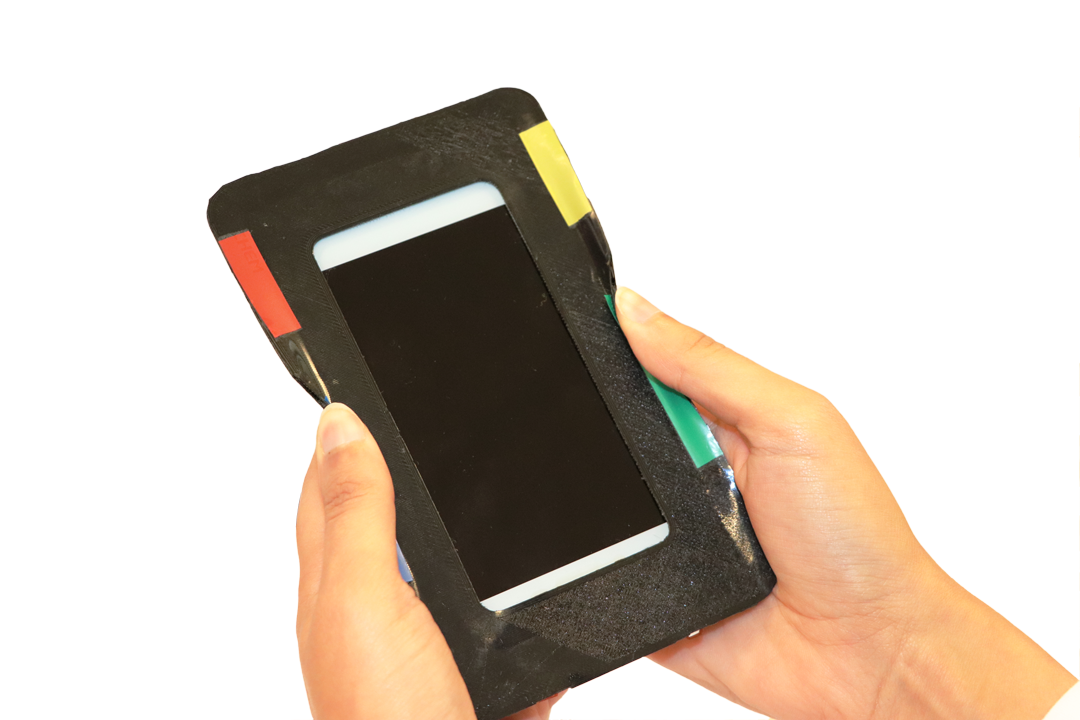Deformable User Interfaces to Improve Manual Dexterity
The central motivation of research in human computer interaction (HCI) is to explore how devices fit into and can improve our lives. Designing for the majority of users has led to many technological advances: keyboard, mouse, and touch among others; but these have limitations with regards to their ability to address the needs of users that require different degrees of accommodation.
People who experience limitations in the mobility and fine motor control of their hands face challenges not only when using computing devices but in everyday tasks such as tying shoes, fastening buttons and snaps, or using cutlery while eating. Many different factors influence hand dexterity including cerebral palsy, fetal alcohol syndrome, multiple sclerosis, Parkinson’s disease, stroke, arthritis, and injury to the head or hands. Current physical therapy strategies for improving manual dexterity focus on improving hand movement through space, rather than object manipulation, and use objects that are acted upon rather than as facilitators or guides for therapy.
Flexible devices, those than can be interacted with through deformations like bending, squeezing, and twisting, offer one avenue of augmenting current physical therapy methodologies. Deformable gestures, which we apply broadly to cover any interaction which changes the physical form of the device, leverage users’ understanding of their own bodies and the physical world to create intuitive interactions. The tangible affordances of flexible devices could complement the work currently being done to bring HCI and concepts of gamification into therapy for chronic conditions of the hand.
We believe that the novel methods of interaction offered by flexible devices can be adapted to support new therapeutic techniques. Our research project explores the deformation of digital devices as a source of input to improve the manual dexterity of people with hand function limitations. The goal of this research project is to design, fabricate and evaluate specialized deformable devices and applications, to assess if bend gestures are a suitable HCI input technique for hand rehabilitation.
Research Collaborators
We are seeking partners to realize this research project, such as
- Therapists and/or clinics with expertise in upper limb rehabilitation or interest in novel rehabilitation methods and tools
- Industries with interests in the development of new rehabilitation devices, or new applications such as games for rehabilitation
Funding

This project is funded by an Early Researcher Award from the Ontario Ministry of Research and Innovation.
People

David McGookin

Peter Bennett

Orit Shaer

Katie Siek

Marilyn Lennon
Publications


Tangibles for Health Workshop
CHI EA: ACM Conference on Human Factors in Computing Systems Extended Abstracts, 2016

